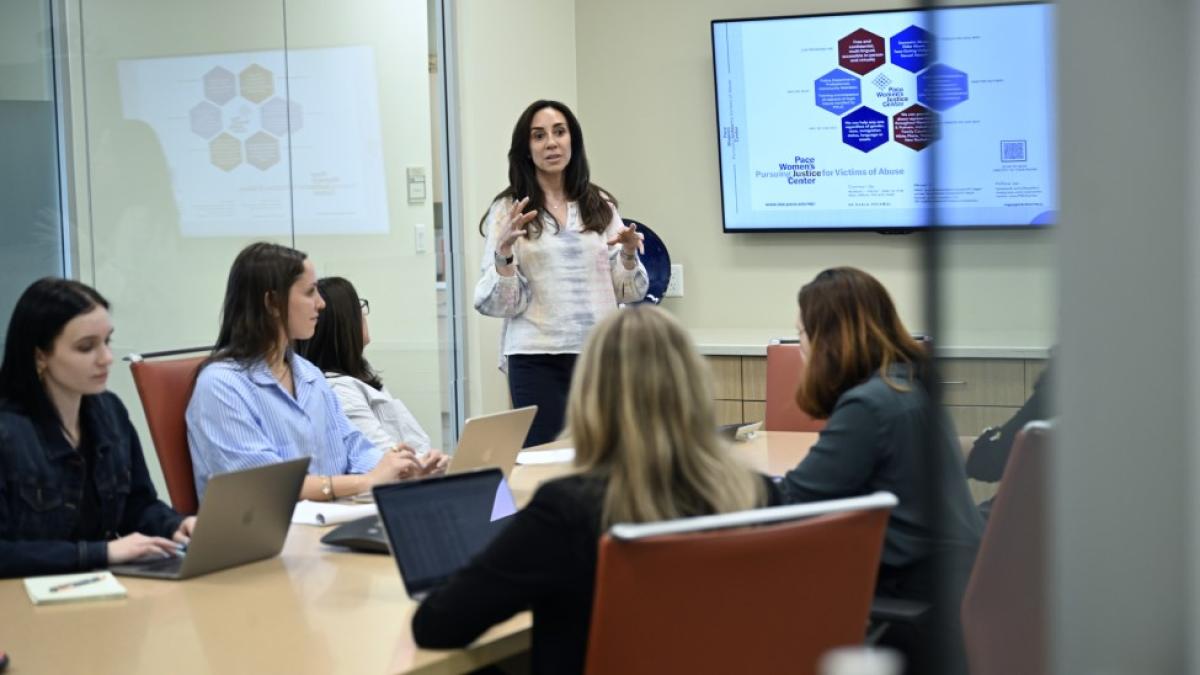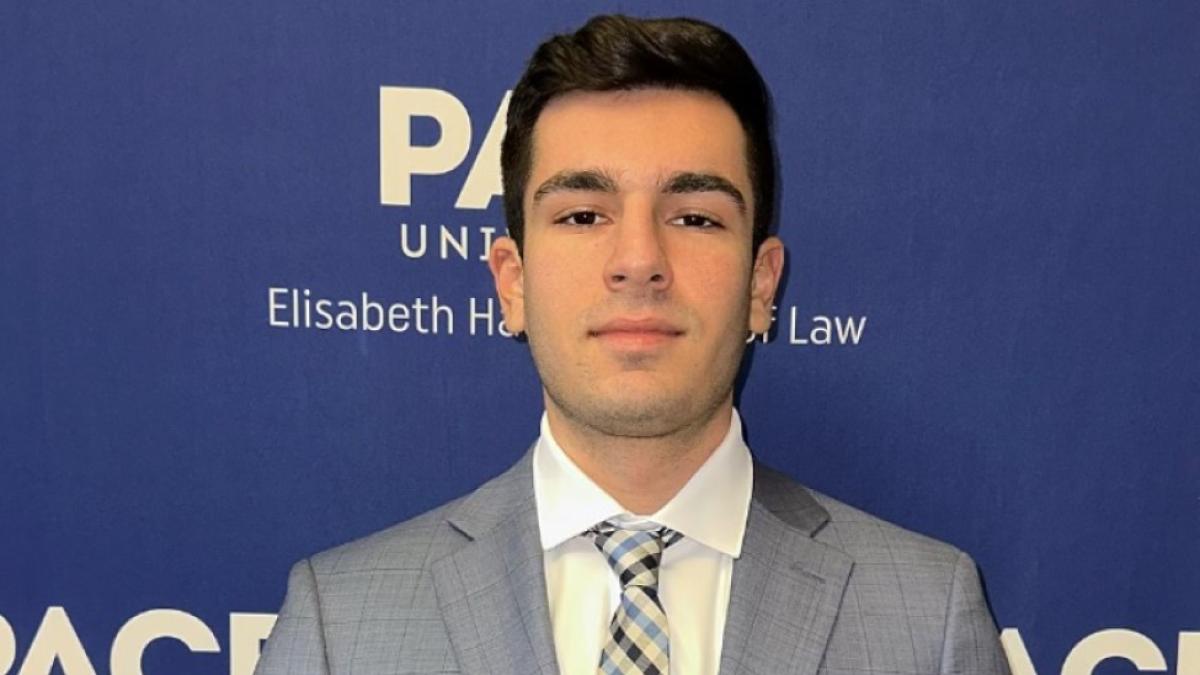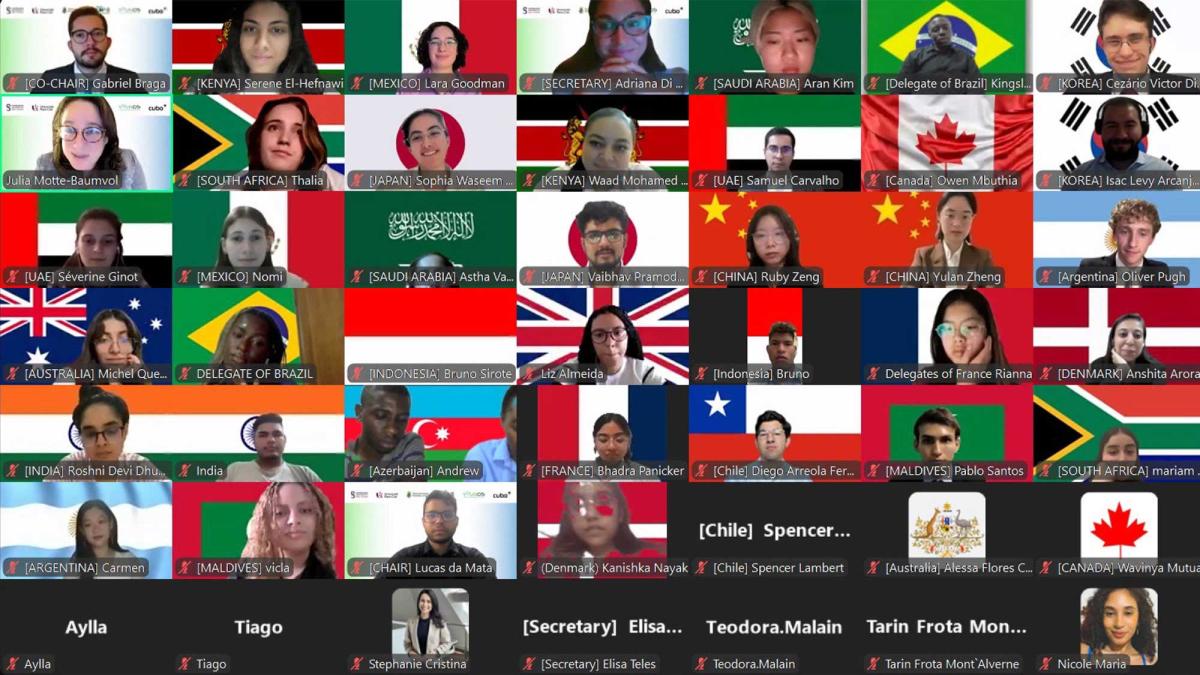
New York City Council Legalizes Jaywalking, Negating 1950s Law
Professor Gershman speaks to The Ticker about the New York City Council legalizing jaywalking; the bill negates a law that has been in effect since 1958.
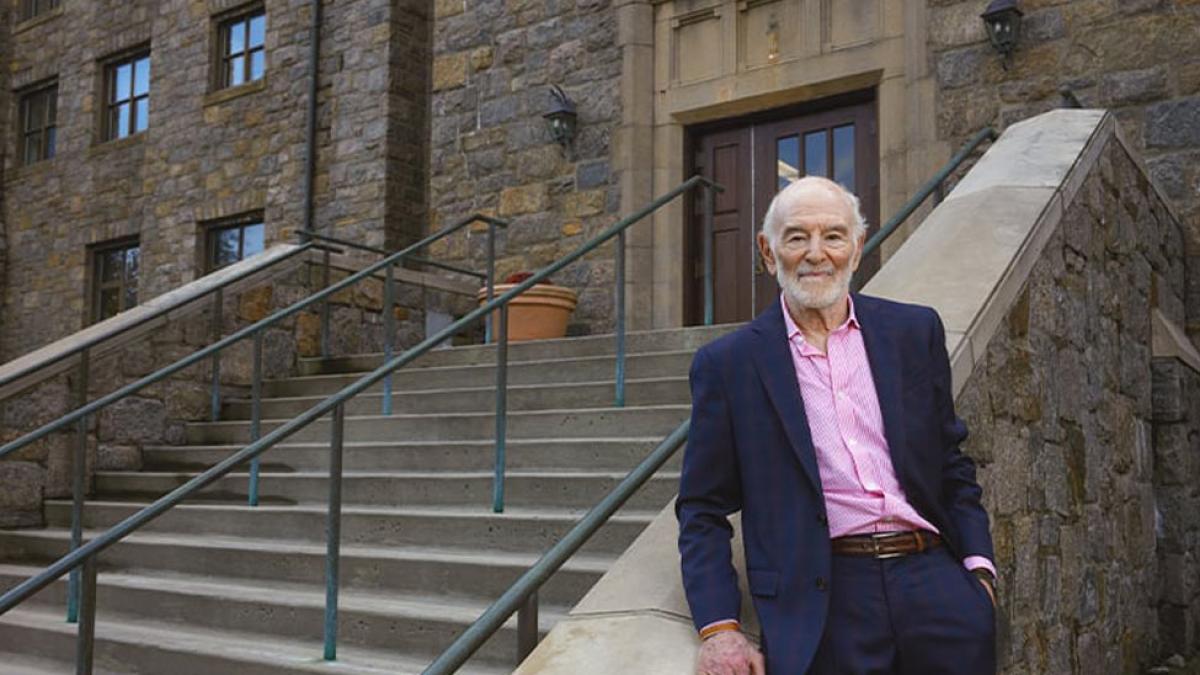
The 2024 Hudson Valley Power 100
Congratulations to Pace President Marvin Krislov on making the City & State’s 2024 Hudson Valley Power 100 list.
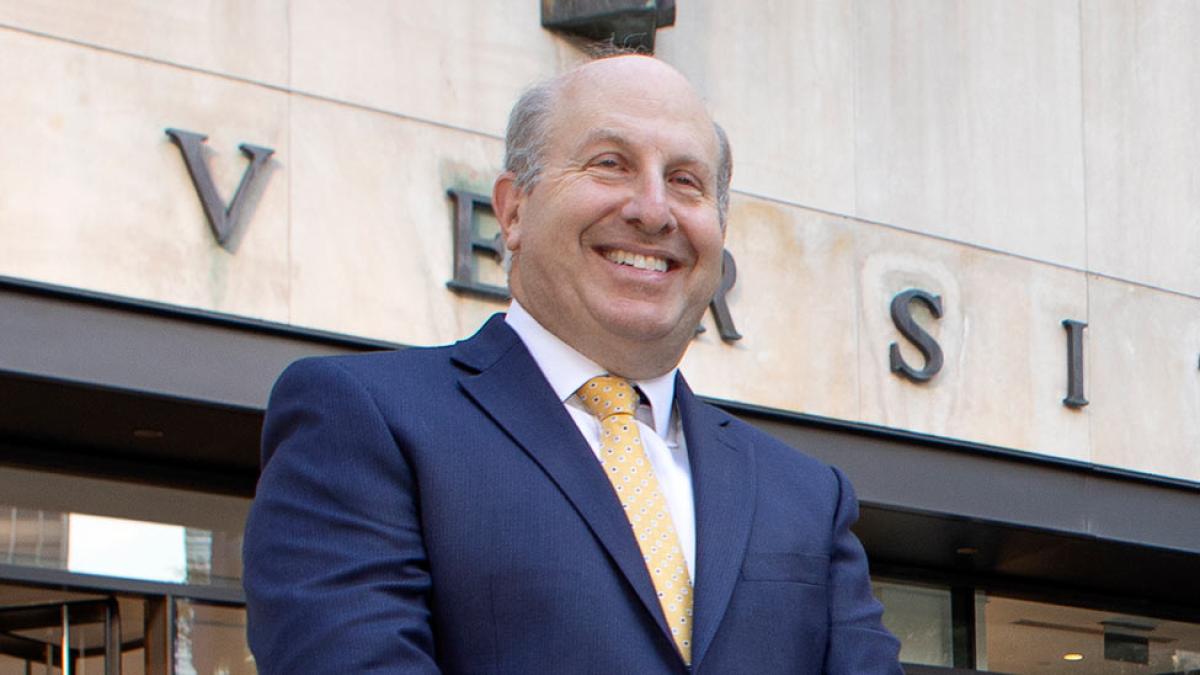
Breakdancers Risk 'Headspin Hole' Or Lump On Scalp, Study Warns
Sands College of Performing Arts Professor Valerie Ho speaks to United Press International (UPI.com) about a study highlighting potential scalp injuries for breakdancers performing head spins.
If Trump Wants It, 2+2=5
Law Professor Bennett Gershman writes a piece in the New York Law Journal discussing how former President Donald Trump wants his supporters and enablers to subordinate their real-world perceptions to his political will.
Your Organization's Privacy Policy — And Privacy Notice
Elisabeth Haub School of Law Professor John Bandler pens an op-ed in Reuters on organizations privacy program, policies, and notices.
Simu Liu Accused A Company Of Cultural Appropriation. It Sparked An Important Conversation.
Dyson Professor Melvin Williams discusses cultural appropriation with The Journal News, focusing on actor Simu Liu’s remarks about the Quebec-based bubble tea brand Bobba.
Pace | Haub Environmental Law Student Wins Prestigious Climate Negotiation Competition, Earning Spot in COP29
LLM student Samuel Fonseca de Carvalho has emerged victorious in the SUAD YOUTH COP competition, a prestigious global mock negotiation of the United Nations Framework Convention on Climate Change (UNFCCC).
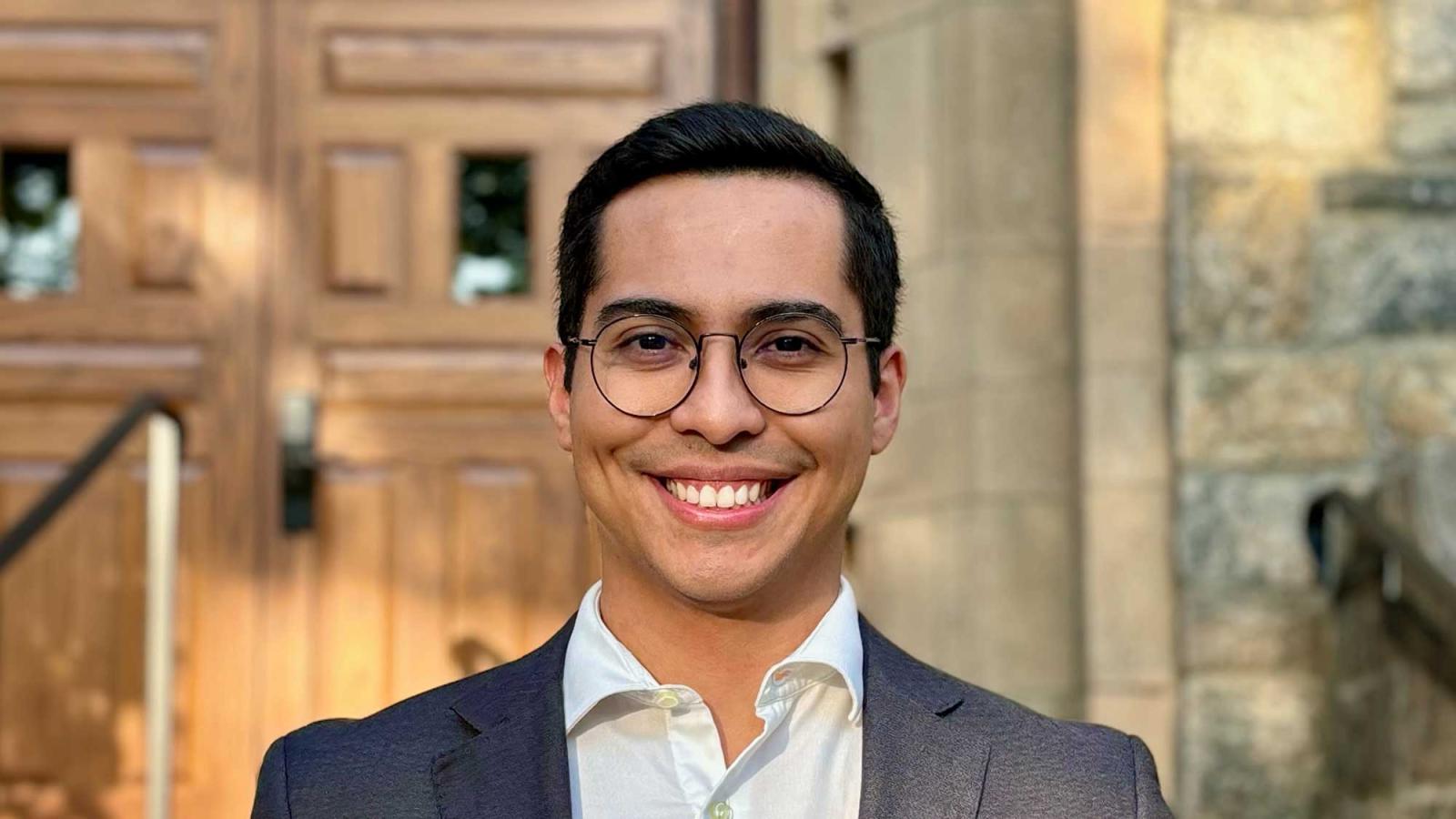
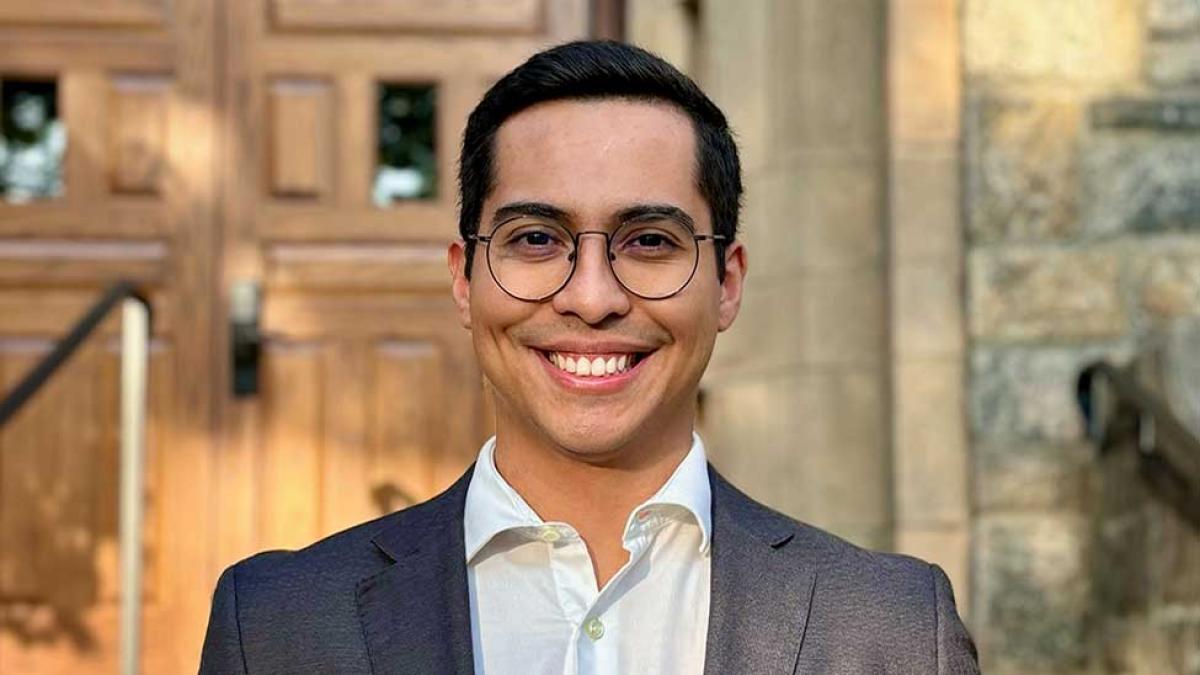
Samuel Fonseca de Carvalho, an LLM student at the Elisabeth Haub School of Law at Pace University, has emerged victorious in the SUAD YOUTH COP competition, a prestigious global mock negotiation of the United Nations Framework Convention on Climate Change (UNFCCC). The event, organized by Université Paris Cité (France), Universidade Federal do Ceará (Brazil), and Sorbonne University Abu Dhabi (United Arab Emirates), in partnership with YOUNGO/UNFCCC, simulates the UN's COP negotiations, challenging students to tackle pressing climate issues such as biodiversity and just energy transition. Samuel’s exceptional skills in climate negotiations have secured him a spot at COP29, to be held in Baku, Azerbaijan, where he will join an official panel this November entitled “Youth Voices for a Sustainable Future: Oceans, Biodiversity, and Energy at COP29.”
Held September 27–29, 2024, the SUAD YOUTH COP competition brought together teams from around the world, each representing different UNFCCC member states to negotiate and produce agreements. The intense 3-day competition is designed to foster critical skills such as teamwork, compromise, and conflict resolution—all of which Samuel demonstrated with remarkable success, winning the award for Best Team, alongside his partner Séverine Ginot from University of Paris I: Panthéon-Sorbonne, who was an exchange student at Haub Law last year. Working collaboratively, the team showcased an extraordinary balance of preparation, in-depth knowledge, and diplomatic conduct. Their ability to navigate complex issues truly set them apart as leaders in this year's competition.

At Haub Law, Samuel is currently pursuing an LLM in Environmental Law with a specialization in Energy and Climate Change Law. In addition to being selected as a Sustainable Business Law Hub Scholar, he is a Research Assistant for the Global Center for Environmental Legal and was previously a Legal Student Researcher for the Pace Energy and Climate Center. Reflecting on his recent achievement, Samuel shared, “Participating in the SUAD YOUTH COP was an amazing learning and professional development experience. It allowed me to apply what I’ve learned at Pace in a real-world context, and I’m excited to take those lessons with me to COP29.”
Samuel’s success is a testament to the Law School’s commitment to cultivating global leaders in environmental law and advocacy who are ready to face today’s most urgent challenges. We look forward to following Samuel's journey at COP29, where his voice will contribute to shaping the future of climate action.
More from Pace
PWJC’s many programs offer free legal assistance, free legal clinics open to the public, and training for professionals. It also has a robust program to recruit, train, and supervise volunteers. A dedicated team of volunteers include those who have some legal training — such as lawyers, paralegals, and law students — and those who bring other skills to Center programs, such as community members, and high school and college students.
The Elisabeth Haub School of Law at Pace University is pleased to announce that three new members have joined its Board of Visitors. All three members, Basil Seggos ’01, Jacqueline Hattar ’91, and Jud Siebert ’85, are distinguished Haub Law alumni.
Having grown up in a family full of lawyers – from his father to his cousins, and most recently his sister – from a young age Marc Bisogno ’25 aspired towards a career in law. He was drawn to Haub Law in particular because of the atmosphere of support on campus.
Press Release: Pace University Hosts the Largest Career Fair in University History
Pace University Career Services on Wednesday hosted one of its signature events: the Fall 2024 Job and Internship Career Fair. With record-breaking student turnout, it was the largest job fair in the University’s history.
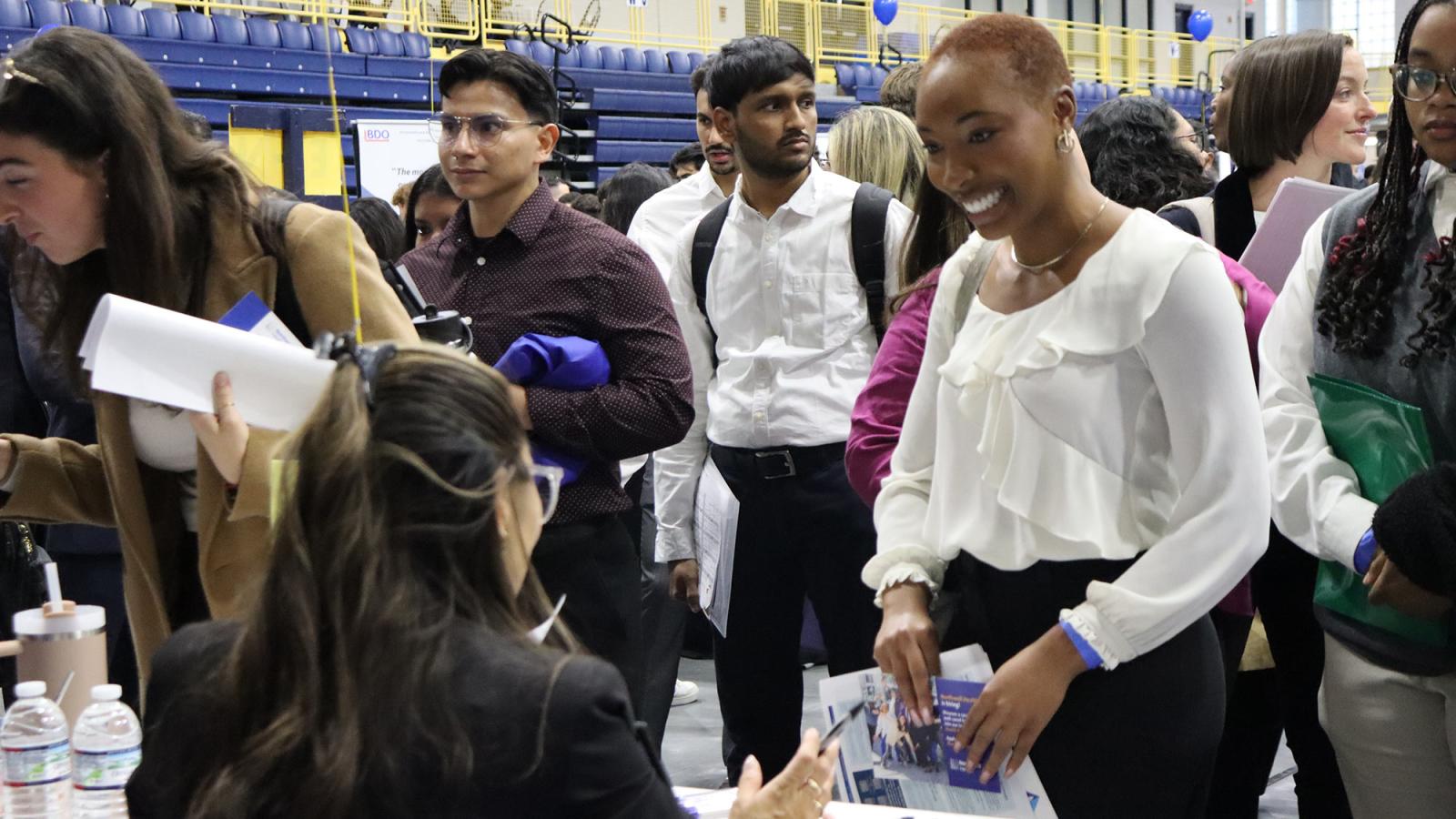
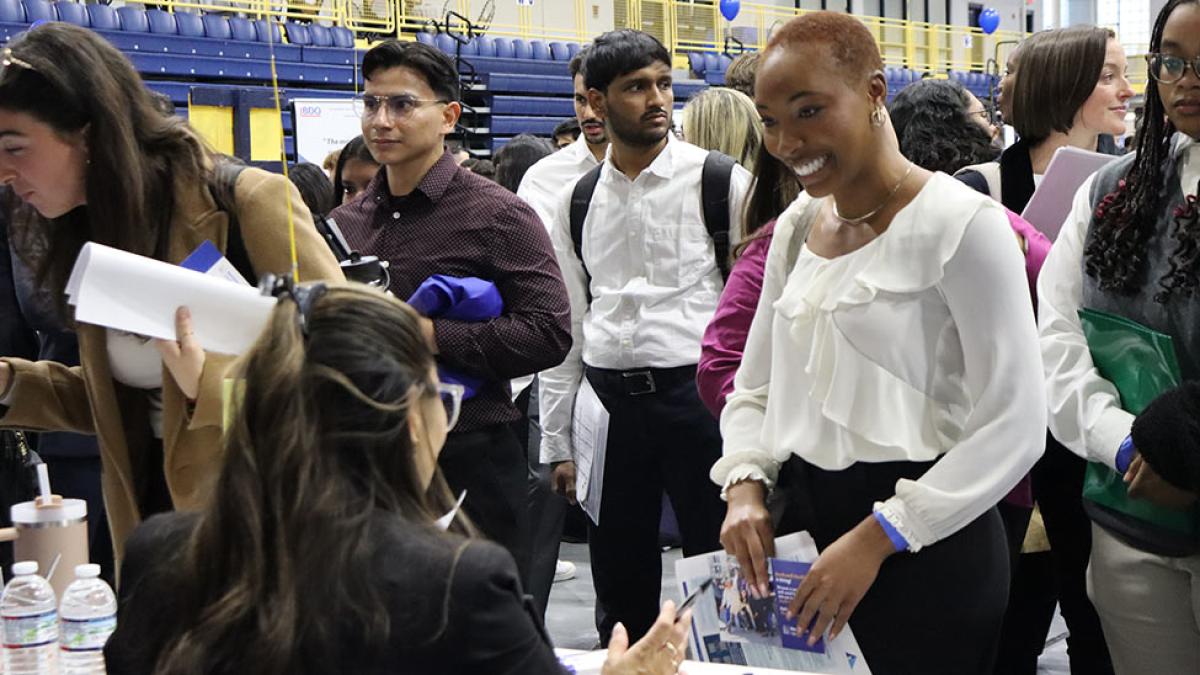
Over 900 students from Pace’s New York City and Pleasantville campuses connect with top employers
Pace University Career Services on Wednesday hosted one of its signature events: the Fall 2024 Job and Internship Career Fair. With record-breaking student turnout, it was the largest job fair in the University’s history.
Over 900 hundred students turned out – including many from Pace’s campus in lower Manhattan – to the employment fair where over 110 companies were in attendance including Altice USA, Deloitte, EY, FBI, KPMG, Northwell Health, Memorial Sloan Kettering Cancer Center, Montefiore Medical Center, Regeneron, Sherwin-Williams, and Westchester Magazine, among many others. The event featured a coffee truck sponsored by KPMG, a pizza truck, free smoothies from the University’s student-run businesses, music, and other amenities like a Quiet Room.
The fair was open to students across all majors and was sponsored by PricewaterhouseCoopers (PwC), one of the world’s “Big Four” accounting firms offering a range of professional business services, from auditing to strategy consulting.
“At Pace University, we prioritize early student engagement and meaningful employer partnerships to create impactful opportunities that lead to successful internships and jobs after graduation,” said Phyllis Mooney, Assistant Vice President of Career Services and Employer Relations at Pace University.
Pace’s Career Services is a leader in the region for providing a range of career counseling and programming to ensure that the students are career-ready and have the skills employers are looking for in candidates. In fact, the Class of 2023 First Destination Survey review found that 94% of Pace’s Bachelor graduates were employed or continuing their education six months from graduation.
Jacob Selman ’24, a digital marketing major with a concentration in arts and entertainment management, started his new position as a strategic planning fellow at Havas Health & You immediately after graduation. Jacob first learned about the fellowship—designed to provide entry-level hires with exposure to various facets of health and wellness advertising—through his career counselor. He then networked with Havas Health & You representatives at the Career Fair, which helped him secure the role.
“With the help of Career Services, I gained deeper insights into this company and better aligned myself as a candidate for this role, which ultimately led to an offer,” said Selman.
Pace’s Career Services also offers their employer partners a tailored, successful recruiting experience that introduces recruiters to talented students that represent the very best of Westchester, the New York City region, and the world—resulting in extraordinary outcomes. Top brands that employ Pace students include Amazon, Deutsche Bank, IBM, JPMorgan Chase & Co., Mac Cosmetics, Meta, Microsoft, Montefiore, PepsiCo, Pfizer and Warner Brothers Discovery.
"I’m aiming to connect with as many employers as possible to explore new opportunities that align with my goal of becoming a nurse,” said Sckalisha Elome, a nursing major who was among students from the lower Manhattan campus that attended the Job Fair. “With graduation approaching, it’s exciting to consider the career paths available to me.”
Natasha Fallen ’22, an experienced audit associate at PwC, attended as an employer to network with students. “It’s amazing to come back to Pace in this capacity to help students explore their career opportunities,” said Fallen. “The Career Fair helped me secure an internship at PwC, which turned into a full-time position, and I am extremely grateful.”
About Pace University
Since 1906, Pace University has been transforming the lives of its diverse students—academically, professionally, and socioeconomically. With campuses in New York City and Westchester County, Pace offers bachelor, master, and doctoral degree programs to 13,600 students in its College of Health Professions, Dyson College of Arts and Sciences, Elisabeth Haub School of Law, Lubin School of Business, Sands College of Performing Arts, School of Education, and Seidenberg School of Computer Science and Information Systems.
12 Dyson Students Named United Nations Millennium Fellows
Twenty-two Pace University students have been selected for the highly competitive United Nations Academic Impact-Millennium Fellowship Class of 2024, including 12 students from Dyson College of Arts and Sciences. They represent only 5 percent of more than 52,000 applications accepted from students at 6,000 colleges and universities in 48 nations.

Twenty-two Pace University students have been selected for the highly competitive United Nations Academic Impact-Millennium Fellowship Class of 2024, including 12 students from Dyson College of Arts and Sciences. They represent only 5 percent of more than 52,000 applications accepted from students at 6,000 colleges and universities in 48 nations.
Students accepted into the UN Millennium Fellowship program launch individual or group semester-long projects on their campuses or in their communities relating to one or more of the UN’s Sustainable Development Goals, 17 objectives focused on bettering our world through social impact projects relating to peace, justice, wellbeing, and sustainability.
Pace has developed a tradition of participation in the Millennium Fellowship, and that tradition continues with this year’s class of Fellows working on projects that include: the right to know what is in one’s drinking water, viewing the Ukrainian war through children’s eyes, reducing the carbon footprint of students in the residence halls, reproductive justice, addressing food insecurity for college students, and advancing human rights for refugees. Fellows will also connect with students around the world and attend enrichment sessions led by their peers and global leaders.
The Dyson students selected for the Class of 2024 include:
- Julia DeMairo ‘27, Environmental Studies and Peace and Justice Studies
- Madison Everlith ‘27, Women's and Gender Studies
- Erika Fenty ‘25, Environmental Studies
- Anthony Guerrero ‘25, Business Economics
- Sarah Montimaire ‘26, Digital Cinema and Filmmaking
- Akithma Moraes ‘27, Political Science
- Genesis Nwoseh-Streeter ‘26, English Literature
- Anne Roy ‘26, Biochemistry
- Natalie Maclay Tijerina ‘26, Peace and Justice Studies
- Paris Tracey ‘26, Personality and Social Psychology
- Destiny Washington ‘26, Applied Psychology and Human Relations
- Viktoriia Yevtushenko ‘25, Business Economics
